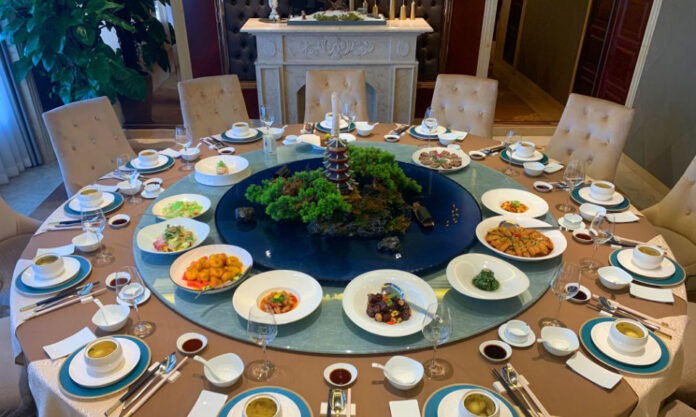For this column’s last outing, we look at something not often associated with the everyday Chinese dining experience; etiquette and table manners. Often met with surly service staff and spitting, smoking and belching patrons, it is easy to assume that overly zealous bourgeois ideals of “good table manners” are just not required in China; all hats are off and elbows can go on tables,hurrah!
Not so fast. Chinese formal table manners is said to date as far back to the Zhou Dynasty and is very, very much required in many formal settings to this day.
Practicing good table manners is believed to bring health and good fortune, while behaving slovenly may reflect poorly on one’s parents. Furthermore, if mistakes are made during a business banquet it could also reflect poorly on how deals are made. Generally speaking, when grabbing an informal bite at your local “tiantian jia” (everyday restaurant), virtually no etiquette is followed*. However, whenever dining formally for banquettes to do with business, special occasions or family, it is important to be familiar with the many dos and don’ts.
Musical Chairs
Seating rules have become a lot more flexible in today’s modern China (previously children ate separately and women joined the table later), but it still goes that the most important chair is the seat facing the entrance and/or east, assigned to the person with the party’s greatest status. To the right and left of this person are those of the next highest status and so on. The meal will not begin until the head of the table begins and will not end until he or she says so.
Digging for Treasure
Either at home, at school, work or at a banquette, eating or chewing noisily is considered improper. Playing, spinning, waving, tapping, drumming, banging or pointing with chopsticks is immeasurably offensive. Resting chopsticks that point at someone is rude as well as piercing, impaling and or spearing food. It is seriously frowned upon for anyone to go “digging for treasure”, i.e. looking for the best part of the dish.
Sharing is Caring
The Lazy Susan is used for a reason, hogging the expensive dishes and or best cuts is considered rude, and these parts are, more often than not, offered to the host first. The younger generation must always refill drinks and/or offer elders before filling themselves up. Awareness is key, guests will always wait until others have selected before moving the Lazy Susan their way. Those sharing will never use their hands when moving food; only chopsticks and/or spoons are used.
Let’s Dance
While everyone at the table is very aware that the host will pay for the meal, it is expected that you fight at least twice for the right to do so. This signifies your gratitude and ensures the host neither owes you anything or vice versa. If one refuses to allow the host to pay, it may signify you believe they cannot afford it! Conversely, not arguing over the bill may imply the host owes you a favour.












